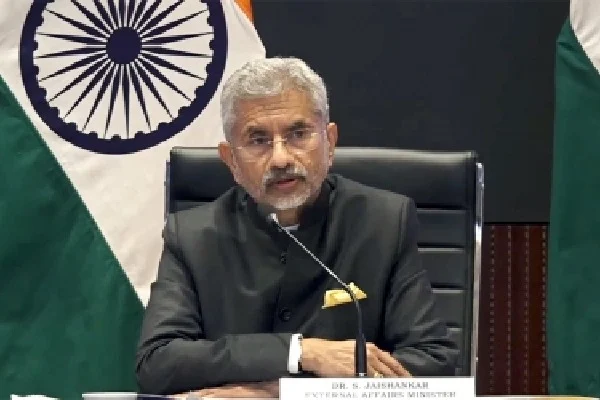The persistent border dispute between India and China will remain a significant factor affecting relations between the two nations on multiple fronts, including trade and economics, clarified External Affairs Minister S Jaishankar on Saturday. Addressing a meeting, Jaishankar emphasized that normal relations between India and China are unlikely unless a firm solution is reached on the border issue, and the forces stationed there face each other.
“I have explained to my Chinese counterpart that unless you find a solution on the border, if the forces will remain face-to-face and there will be tension, then you should not expect that the rest of the relations will go on in a normal manner; it is impossible,” stated Jaishankar during the ‘Manthan’ townhall meeting in Maharashtra’s Nagpur.
The border tensions between India and China have been a persistent issue, leading to military standoffs and impacting diplomatic ties. Jaishankar’s recent remarks underline the Indian government’s stance on the matter, highlighting the necessity of resolving the border dispute for the normalization of broader bilateral relations.
In the course of the interaction, Jaishankar addressed various aspects of Indian diplomacy, shedding light on India’s efforts to secure a permanent seat in the United Nations Security Council (UNSC). He noted that over time, more countries are expressing support for India’s inclusion in the UNSC, but he acknowledged that achieving such recognition requires proactive efforts.
“With each passing year, the world feels that India should be there, and I can feel that support. The world does not give things easily and generously; sometimes you have to take it,” Jaishankar remarked on India’s pursuit of a permanent seat in the UNSC.
Responding to questions about India’s participation in international groupings like QUAD and BRICS, Jaishankar highlighted the importance of maintaining ties with different nations in diplomacy. He emphasized India’s independent stance, noting the need to manage interests by dealing with diverse groups. Jaishankar drew an analogy to everyday life, where individuals strive to maintain friendly relationships with people who may have disagreements with each other.
“Just like how people visit different parties to maintain good relations with other people, I follow the same practice for India’s foreign policy,” explained Jaishankar, underscoring the significance of engaging with various nations to safeguard India’s interests.
The External Affairs Minister’s insights into India’s foreign policy and diplomatic strategies provide valuable perspectives on the challenges and opportunities the country faces in the global arena. As the India-China border issue continues to impact broader relations, Jaishankar’s emphasis on the need for a resolution underscores the complexities involved in managing bilateral ties amid regional and global dynamics.
